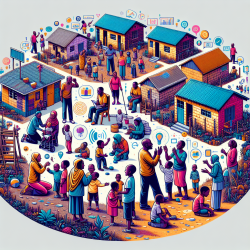Welcome to the World of Data-Driven Decisions in Online Therapy
As a passionate advocate for enhancing children's outcomes through speech-language pathology, I am thrilled to explore how data-driven decisions can revolutionize online therapy services. At TinyEYE, we are committed to leveraging research insights to improve our practices and deliver exceptional therapy experiences to schools.
Research Insights: A Catalyst for Improvement
The research article titled A Focus Group Study of Canadian Dairy Farmers' Attitudes and Social Referents on Antimicrobial Use and Antimicrobial Resistance provides valuable insights into decision-making processes. While the focus is on dairy farmers, the principles of data-driven decisions and the role of social referents can be applied to online therapy services.
Implementing Research Outcomes in Online Therapy
Here are some key takeaways from the research that can be applied to enhance online therapy services:
- Data-Driven Decisions: Just as dairy farmers rely on data to make informed decisions about antimicrobial use, online therapy practitioners can use data to tailor therapy plans for each child. By analyzing progress metrics and feedback, therapists can adjust strategies to meet individual needs effectively.
- Role of Social Referents: In the research, social referents such as veterinarians and fellow farmers influence decision-making. In online therapy, collaboration with educators, parents, and other therapists can provide valuable insights and support for developing comprehensive therapy plans.
- Continuous Improvement: The research highlights the importance of continuous learning and adapting practices based on new information. Online therapy practitioners can stay updated with the latest research and incorporate evidence-based practices to enhance therapy outcomes.
Encouraging Further Research and Collaboration
To truly harness the power of data-driven decisions in online therapy, practitioners are encouraged to engage in further research and collaboration. By participating in studies and sharing insights, we can collectively advance the field and improve therapy outcomes for children.
To read the original research paper, please follow this link: A Focus Group Study of Canadian Dairy Farmers' Attitudes and Social Referents on Antimicrobial Use and Antimicrobial Resistance.
Conclusion
Data-driven decisions hold immense potential for transforming online therapy services. By integrating research insights, collaborating with social referents, and continuously improving practices, we can create exceptional therapy experiences that lead to positive outcomes for children.










